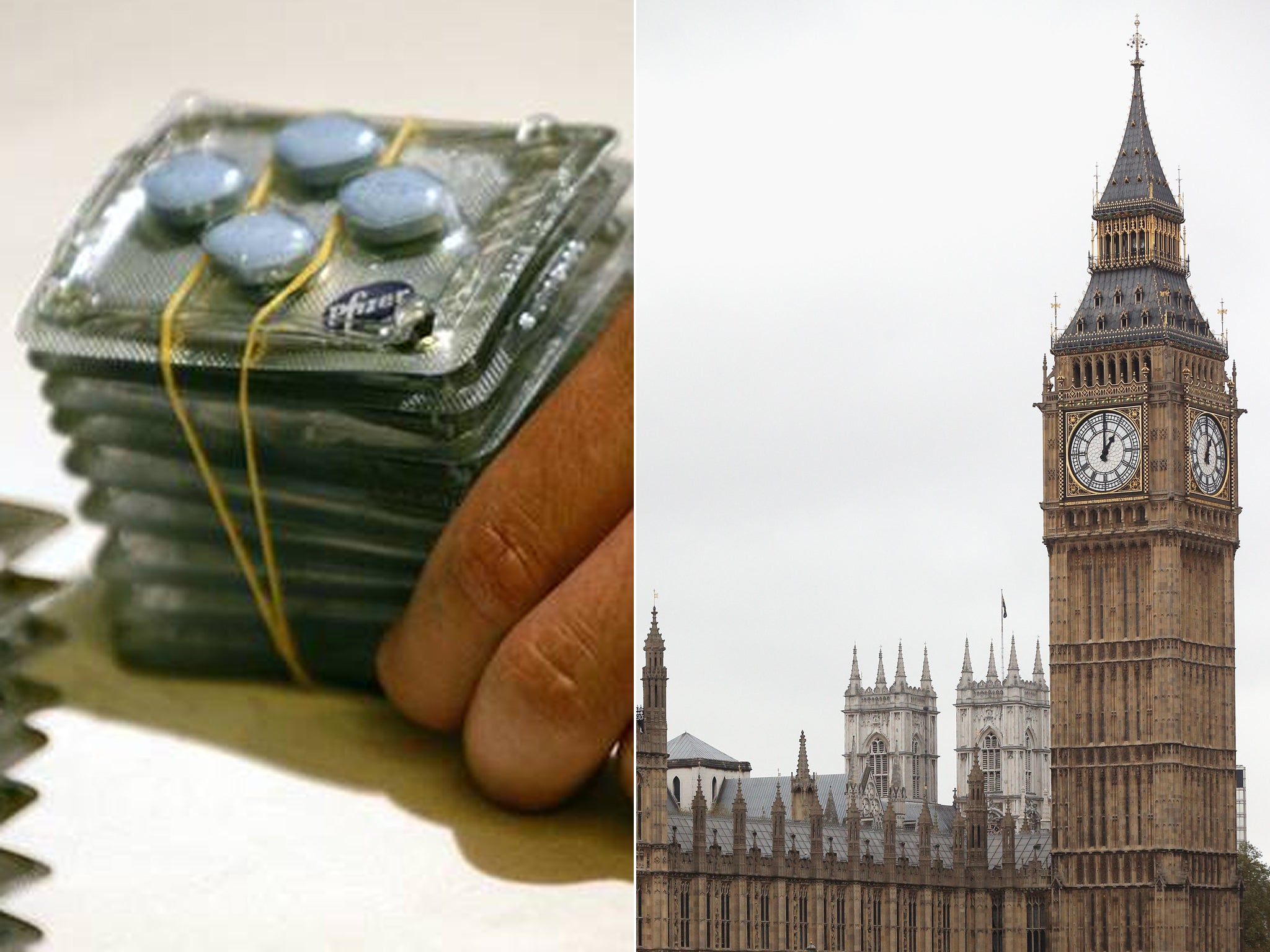Stress and economic climate to blame as Westminster is named impotence capital of England
A study showed that 20 per cent of people seeking treatment for the problem live in the South East of England

Your support helps us to tell the story
From reproductive rights to climate change to Big Tech, The Independent is on the ground when the story is developing. Whether it's investigating the financials of Elon Musk's pro-Trump PAC or producing our latest documentary, 'The A Word', which shines a light on the American women fighting for reproductive rights, we know how important it is to parse out the facts from the messaging.
At such a critical moment in US history, we need reporters on the ground. Your donation allows us to keep sending journalists to speak to both sides of the story.
The Independent is trusted by Americans across the entire political spectrum. And unlike many other quality news outlets, we choose not to lock Americans out of our reporting and analysis with paywalls. We believe quality journalism should be available to everyone, paid for by those who can afford it.
Your support makes all the difference.The South East has been named the impotence capital of England with Westminster having the highest count of men seeking treatment.
A study by online clinic, HealthExpress, showed that 20 per cent of people seeking treatment for the problem live in the South East of England.
Westminster in London was found to be the impotence capital.
The South East was followed by the South Midlands which accounted for 11.3 per cent of completed impotence consultations.
In third place on the list was the West Midlands with 9.3 per cent and Yorkshire was fourth with 7.9 per cent.
Experts have said the figures could indicate a rise in the number of cases, and that this could be due to an increase in anxiety and stress, possibly caused by long working hours and the recession.
Impotence is thought to be a common condition with some surveys suggesting up to 33 percent of men will suffer at some point in their lives.
Dr Hilary Jones, an adviser to HealthExpress said: "The survey could reflect a regional reticence factor in men actually admitting erectile dysfunction and seeking help for it, however, impotence is a common issue and many GPs have seen an increased number of men coming to them for advice, as the stress of everyday life affects their erectile function.
"However, it is key to gain medical advice as in some cases it can be a sign of a more serious underlying health issues including diabetes and heart problems.
"Impotence is not something men should be embarrassed about and there a lot of treatments on the market, whether that be prescription drugs, therapy in the form of counselling or relaxation, and in rare cases, surgery.'
Join our commenting forum
Join thought-provoking conversations, follow other Independent readers and see their replies
Comments